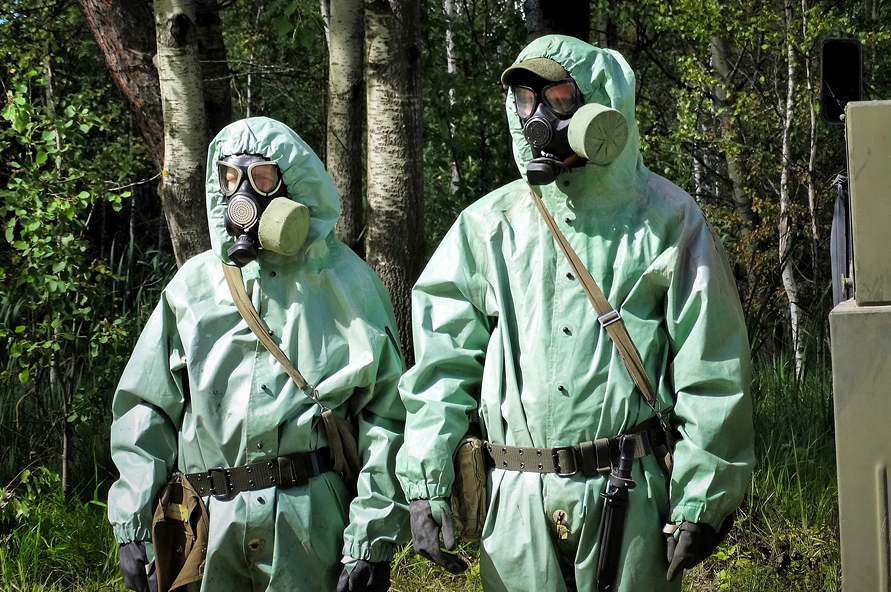EN 943-1 Type 1 Gas-Tight Protective Suit Performance Testing
The EN 943-1 standard is one of several European standards designed to ensure the safety and performance of protective clothing in the military sector. Specifically, this standard focuses on Type 1 gas-tight protective suits used by personnel who are exposed to hazardous environments containing NBC (Nuclear, Biological, and Chemical) agents.
The testing procedure outlined in EN 943-1 is designed to ensure that these suits meet stringent requirements for preventing the ingress of hazardous substances. This involves a series of rigorous tests aimed at verifying the integrity of the suit's materials, seams, and closures against gas and liquid penetration. The test setup typically includes a pressure chamber where the suit is subjected to various pressures and gases to simulate real-world conditions.
The testing process begins with meticulous preparation of the suit, including ensuring all components are properly assembled and in their intended positions. Following assembly, the suit is then placed into a specialized testing chamber where it undergoes a series of pressure cycles that simulate both external and internal pressures encountered during operational use. The goal is to evaluate the suit’s ability to maintain its gas-tight integrity under these conditions.
The instrumentation used in this process includes high-precision gauges capable of measuring minute changes in pressure within the chamber, as well as specialized cameras that allow for real-time observation of any breaches or leaks. Additionally, chemical sensors are employed to detect even trace amounts of gas or liquid penetration through the suit material.
The acceptance criteria for successful completion of this test are extremely stringent and are designed to ensure the highest level of protection is provided to personnel in high-risk environments. A suit must pass all tests without any observed breaches, leaks, or other signs of compromise. Failure at any point during the testing process results in the suit being deemed non-compliant with EN 943-1 standards.
Customer Impact and Satisfaction
- Enhanced Safety: Ensuring that all protective suits meet or exceed the stringent requirements set forth by EN 943-1 directly impacts the safety of military personnel. This contributes to higher levels of trust and satisfaction among end-users.
- Compliance Assurance: Meeting these standards provides peace of mind for procurement officers that they are selecting products that comply with international regulations, thereby avoiding potential legal issues or recalls.
The rigorous testing ensures that only the highest quality suits reach military personnel, leading to greater satisfaction and improved operational readiness. Compliance with EN 943-1 is not just a requirement but also a symbol of commitment to safety and excellence in protective gear.
Competitive Advantage and Market Impact
- Market Leadership: By offering comprehensive testing services aligned with EN 943-1, Eurolab positions itself as a leader in quality assurance for military equipment. This is particularly important given the critical nature of protective gear.
- Reputation and Brand Loyalty: Consistently delivering top-tier testing results fosters strong brand loyalty among clients and potential future customers.
The ability to provide reliable, high-precision testing services for EN 943-1 compliant suits enhances Eurolab’s reputation as a trusted partner in the military sector. This reputation translates into long-term contracts and repeat business from satisfied clients.





